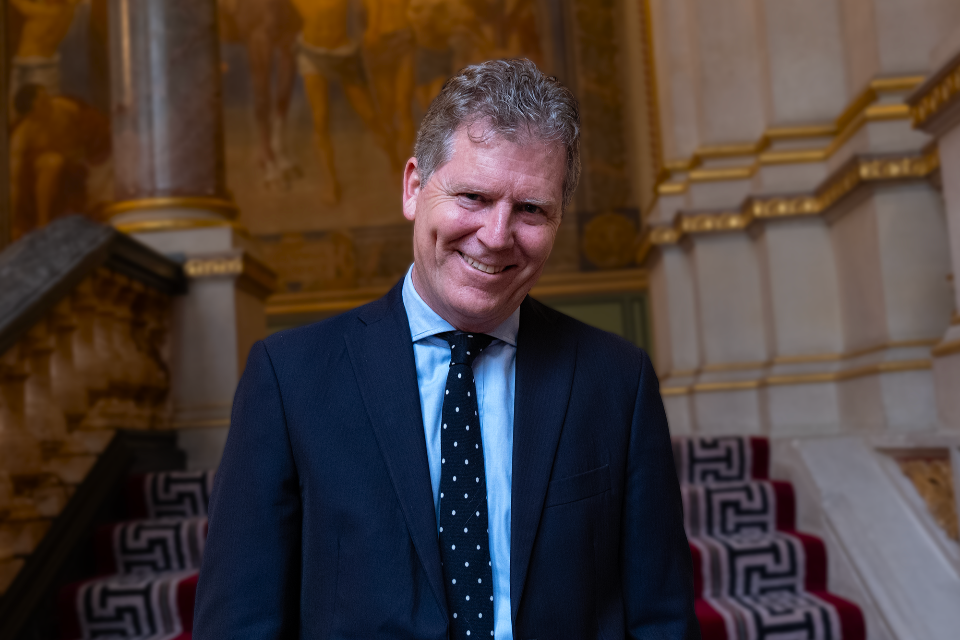Thank you, Mr. President, and may I begin by also thanking the Secretary-General for his very detailed introduction to today’s very important debate.
What is very clear is the humanitarian crisis in Gaza is worsening daily. People have lost their families. People have lost their homes. Hundreds of thousands of Palestinians are now facing the risk of famine. They’re suffering, frankly put, is unacceptable and our priority must be to alleviate it. Last month, together with the Foreign Secretary, Lord Cameron, we both visited Al Arish near the Rafah crossing. Amongst other engagements, it was a privilege to meet Egyptian Red Crescent Society staff who, along with others including UNRWA and many other international organisations, are working tirelessly to get life saving aid into Gaza. May I put on record that we sincerely commend all UN and humanitarian teams for their ongoing work, amid hugely difficult conditions on the ground. Many, as we’ve heard, already have paid with their lives. I’ve heard also first-hand reports of what can only be described as shocking and harrowing medical operations and procedures taking place, including on young children, desperate conditions, no anesthesia and, as a backdrop to that, mass burials taking place. To put it succinctly and directly, this must end. Agreements are needed now, and the UK is calling for an immediate humanitarian pause as being necessary to get lifesaving aid in and hostages out. We must alleviate the pain and suffering for all.
In parallel and in accordance with resolution 2720, we urgently call on Israel to significantly increase the flow of aid into Gaza, including through opening Ashdod port and increasing immediate access through Kerem Shalom. This needs to happen and happen now. The United Kingdom has trebled our financial aid commitment to support Palestinian civilians in theOccupied Palestinian Territories this year. And I assure you, Mr. President, we will continue to do everything we can to get more aid in and open more crossings.
Yes, the UK supports Israel’s security, its right to self-defense, but this must be in line with international humanitarian law. And of course, like others, we condemn all forms of terrorism. Hamas’ horrific terrorist attacks have had an irreversible impact on innocent lives. I’ve seen this as I saw again last week in my meetings together with the Foreign Secretary, with families of some of the hostages still held in Gaza. But what is very clear is that this conflict must not go on a moment longer than necessary. We must collectively work towards a sustainable ceasefire which ends this shocking destruction, which ends fighting, which ends loss of life and prevents the resumption of hostilities.
So what do we need to do to achieve this? Hamas would have to agree the release of all hostages. No longer can they be in charge of Gaza and no longer pose a threat to Israel through terror attacks. But we also need an agreement in place for the return of the Palestinian Authority to Gaza, as well as a complete rejection of any forced displacement of Palestinians from Gaza. Peace, Mr. President, remains the only way to end this tragedy and suffering that has engulfed Israelis and Palestinians once and for all. Stability, peace, justice and security is the only way forward. For a peaceful solution, four things must also happen: There must be a Palestinian led government in Gaza and across the West Bank, there must be a concrete plan to help revitalize and support the Palestinian Authority, there must be a massive reconstruction plan for Gaza, and importantly, there must be a political horizon towards the delivery of a two-state solution. It is now the time in this tragedy that engulfs us to grasp the moment, to choose hope over despair, peace over conflict, and again commit ourselves to working together to make that vision for peace a true living reality of two states, Israel and Palestine, side by side in the Middle East.
Thank you, Mr. President.










